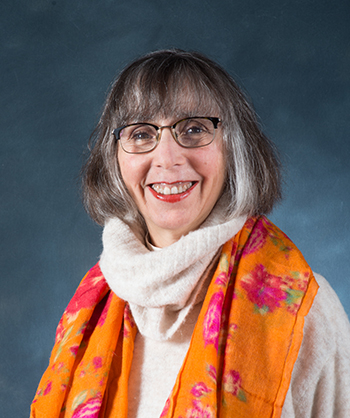A philosophical reflection
Professor of Political Science Susan Shell closed out her 45th and final year at Boston College this month, capping a career devoted to exploring the philosophical aspects of political science, through the works of iconic thinkers such as Thomas Hobbes, Friedrich Hegel, Jean-Jacques Rousseau, and above all, Immanuel Kant—the subject of many of her publications.
“In addition to his writings on politics and other topics, Kant had some incisive things to say about higher education,” Shell says. “He defined the university ironically as a factory for producing Ph.D.s, and more seriously, as ‘a commonwealth of scholars whose trustees are the faculty.’ He spoke to the critical, central role faculty play in the mission of higher education. Kant also talked about the balance between left and right—in an academic sense—that is essential to any well-functioning university.”
Given such views, Kant would no doubt have approved of Boston College (he died almost 60 years before it was founded), said Shell, who sees a university that, while by no means insulated from societal changes and upheaval, has remained constant in identity and purpose.

Susan Shell (Peter Julian)
“There’s a sense of continuity here, of keeping your head and moving forward,” she explained. “That, of course, is a reflection on the University’s Jesuit tradition: an enduring idea that education is for a higher purpose than personal enrichment, and comprises an academic and spiritual dimension.”
Shell has done her part to support those facets of BC’s mission, both in the classroom and through leadership roles, notably as chair of her department for 16 years and director of its graduate studies for 12 years. She also has served on the Morrissey College of Arts and Sciences Board of Chairs and Educational Policy Committee, and on University panels such as the committees on Service, and Student Affairs and Intellectual Life.
Her honors and awards include three fellowships from the National Endowment for the Humanities, and research fellowships from the American Council of Learned Societies, the Bunting Institute of Radcliffe College Earhart, and the Bradley Foundation. Her book The Rights of Reason: A Study of Kant’s Philosophy and Politics won an Alpha Sigma Nu Book Award.
“ I’ve relished the opportunity to examine and teach about the philosophical questions that grow out of politics: How should we rule ourselves? What is justice? I think that, far from being a distant ivory tower, BC places a great importance in fulfilling its civic mission, as well as its religious and academic ones. ”
“I felt this was an attractive place to be, where there was a fruitful marriage of philosophy and political science, and that’s exactly what I found,” recalled Shell, who prior to BC had taught at Concordia University in Montreal and was a postdoctoral fellow in philosophy at McMaster University in Ontario. “There has always been a great deal of civility among us in Political Science, and even though we might represent different political outlooks and use different methodologies, we all take politics seriously. You could sit down with any colleague and have great conversations.
“I’ve relished the opportunity to examine and teach about the philosophical questions that grow out of politics: How should we rule ourselves? What is justice? I think that, far from being a distant ivory tower, BC places a great importance in fulfilling its civic mission, as well as its religious and academic ones.”
Her friends and colleagues might find it strange, Shell said, “but I actually enjoyed being the department chair, and taking on other administrative tasks and opportunities.” She is gratified at having been able to work with the University in building and strengthening the graduate program in political science, giving it “not just an American focus but an international one.”
On the non-academic side, Shell is happy to have had a hand, through her work with the Board of Chairs, in the creation of the Faculty Dining Room in McElroy Commons. “It’s not just a place to eat and relax, but also to foster collegiality across different departments and programs,” she said. “A chance encounter in the dining room can sometimes bring about a connection that leads to shared academic interests and pursuits.”
In fact, Shell believes that the more settings for informal gatherings and interactions on campus, the better—not only among faculty, but between faculty and students, as well as between graduate and undergraduate students. “I think having those kinds of opportunities are valuable for student formation. I know they were for me when I was one.”
In retirement, Shell will continue with research and writing, including a book manuscript, Kant’s True Politics; the title is reference to a famous Kant quote, “True politics cannot take a single step without first paying homage to morals.”
“I also want to write about how Kant and some of his contemporaries can provide insights and perspectives on today’s politics,” she added. “Great thinkers like Kant are a resource that always provide a useful lens on contemporary matters.”
